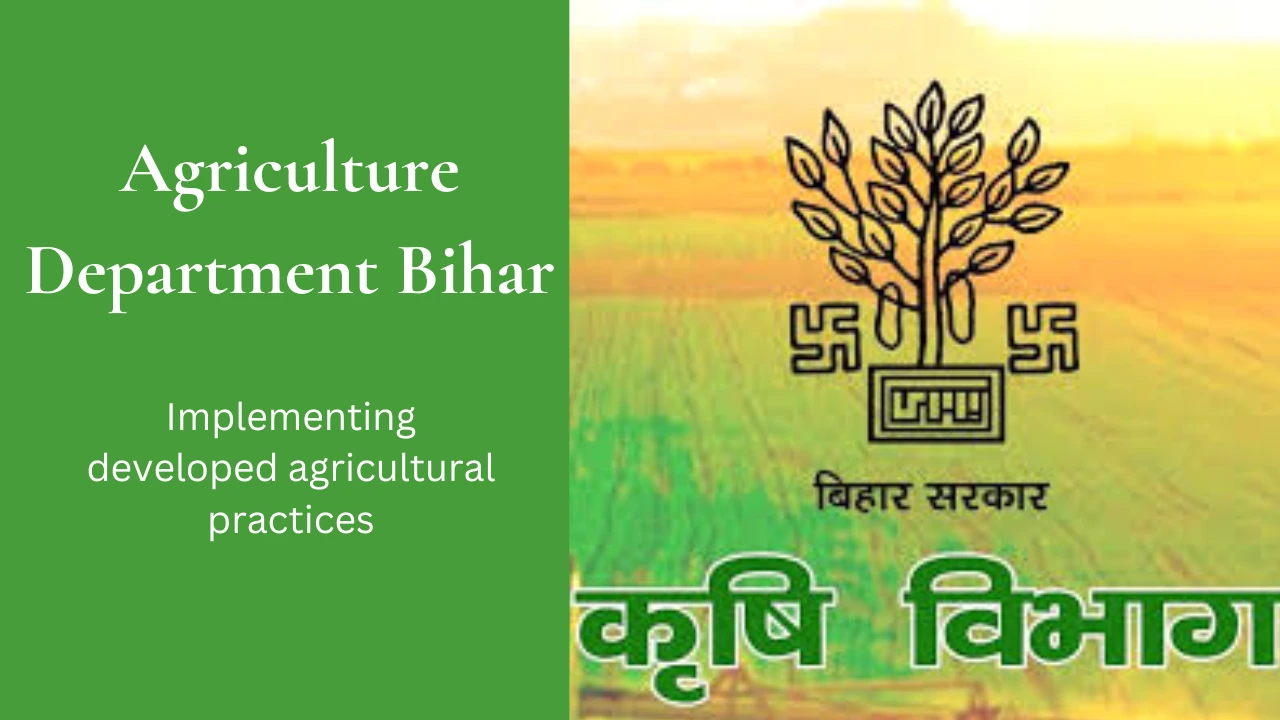
Bihar, a state mostly agrarian, has also experienced much development in its farming techniques because of the efforts bi-annual for by the Agriculture Department Bihar. The department is highly relevant since a majority of its residents, approximately 76.1% of the population, is involved in farming.
This article examines public relations, organizational structure, programs, initiatives, accomplishments, and organisational development plan of this department that is transforming the agriculture industry of the state.
Agriculture Importance in Bihar
Bihar has black soil, water resources, good and favorable climate for the production of various crops. Crops mainly produced include paddy, wheat, maize, millets, pulses, sugarcane, and vegetable crops.
But issues of small farm sizes, unpredictable rainfall patterns, and dull farming techniques have for instance been counter-productive in agriculture for quite some time.
The Agriculture Department Bihar mitigating these issues through implementing developed agricultural practices, makes people conscious about sustainable agricultural practices and comes up with farmers oriented schemes.
Key Functions of the Agriculture Department Bihar
The Agriculture Department of Bihar is responsible for the following:
- Policy Formulation: Policymaking for agricultural development and the consequent policy implementation.
- Farmer Support: Here it is possible to help by providing such forms of aid as training, subsidies, and monetary grants.
- Resource Management: Promoting the rational and efficient utilization of land water and all input factors especially in the provision of foster agriculture.
- Technology Promotion: Modern technology in production as a method of increasing production.
- Research and Development: Developing a new agri-food system: cooperation with agricultural universities and institutions.
Major Schemes and Initiatives
The Agriculture Department Bihar has launched several initiatives to support farmers and enhance agricultural output. Some of the prominent schemes include:
| Scheme/Initiative | Objective | Key Features |
| Mukhyamantri Horticulture Mission | Promote horticulture and diversify crop production | Subsidies for fruit, vegetable, and flower cultivation |
| Pradhan Mantri Fasal Bima Yojana | Provide crop insurance against natural calamities | Affordable premiums and quick claim settlements |
| Organic Farming Promotion | Encourage chemical-free farming for sustainable agriculture | Financial support and training for organic farming |
| Seed Distribution Scheme | Supply high-quality seeds at subsidized rates | Focus on increasing productivity and resistance to pests/diseases |
| Kisan Samman Nidhi | Provide direct financial assistance to small and marginal farmers | ₹6,000 annual direct benefit transfer to farmers |
| Solar Irrigation Pumps | Promote renewable energy in farming operations | Subsidized solar pumps for irrigation to reduce dependency on electricity and diesel |
Achievements of the Agriculture Department Bihar
The Agriculture Department of Bihar has made remarkable progress in recent years:
- Increase in Productivity: Though the high –yielding seed varieties and modern agricultural practices have solved some problems such as poor yield in important crops such as rice and wheat.
- Irrigation Development: The expansion of irrigation facilities as well as encouraging the use of micro irrigation techniques has also reduced the impacts of an unpredictable rainfall pattern.
- Digital Transformation: Farmers are also able to obtain information over, formally apply for, and monitor subsidies via the e-governance platforms.
- Organic Farming Growth: Bihar itself seems to have come up as one of the leading organic farming states with some of the area coming under organic farming.
Vision for the Future
Bihar’s Agriculture Department has envisioned itself creating a resource- rich Bihar leading the way in technology-intensive, sustainable agriculture. Key focus areas include:
- Smart Agriculture: Encouraging precision agriculture for the effective use of resources such as drones and Internet of things (IoT).
- Agri-Entrepreneurship: Buffering policies which will compel the startups and FPOs to develop value added products.
- Export Promotion: Improvement of quality to enable it to meet international markets and also to increase exportation of farm produce.
- Climate Resilience: Breed resistant crop varieties and encourage water use efficient practices.
- Education and Awareness: To make coordinated efforts to launch a series of awareness programmes to inform the farmers.
How Farmers Can Benefit
The Government of Bihar through the Agriculture Department provides numerous resources, facilities and schemes that will be very helpful to farmers in Bihar. Here’s how:
- Enroll in Schemes: Approach preferred local KVKs offices, other local offices, Urban or Rural Banks, Local NGO, or apply online at the official government websites.
- Training Programs: Attend course interventions to discover new farming practices.
- Access to Technology: Improve production utilizing technology such as solar pumps and high germinating seeds.
- Crop Insurance: To minimize or mitigate shocks crop insurance schemes should be taken to minimize losses.
Conclusion
Agriculture Department Bihar is changing the face of agricultural practices in the state on one hand at a very impressive pace.
For achieving the goal of increasing the income level of farmers, providing better irrigational facilities, proper farming practices, the department has already created a strong base for sustainable growth by overcoming challenges, implementing modern techniques and establishing viable farmer friendly schemes.
Read Our More Blogs…





